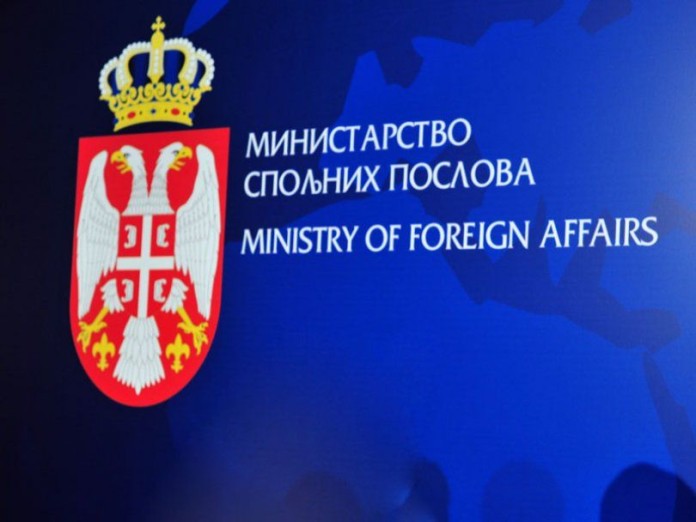Statement of the First Deputy Prime Minister and Minister of Foreign Affairs of the Republic of Serbia Ivica Dacic at the High-Level Event on the Margins of the 71st Session of the UN General Assembly „The Force of Civilian Crisis Management – Strengthening the Capacities of the OSCE as a Chapter VIII organization”:
Thank you, dear Frank,
Dear Sebastian,
Dear Lamberto,
Excellencies,
Ladies and Gentlemen,
Dear Colleagues,
Allow me to begin by thanking the German Chairmanship and especially you Frank, for inviting me to deliver, together with Sebastian, the introductory statement at the opening of this important event. I’m very pleased to emphasize that the OSCE side events, organized in the margins of the UNGA, initiated by the Swiss Chairmanship in 2014, continued by Serbian Chairmanship last year and now German Chairmanship, are becoming a positive tradition. They represent a valuable platform for informal and open exchange of views among participating States on Organization’s role in dealing with the most pressing issues related to the international peace and security. I would like to encourage the incoming Chairmanships to continue with such practice. I fully share Frank’s remarks on Troika co-operation, and hope that this practice will continue.
The OSCE, as the world’s largest regional security arrangement under Chapter VIII of the UN Charter, is in unique position to contribute to the peaceful settlement of disputes. In this context, its comprehensive and multi-dimensional approach to security is an exclusive asset, making the OSCE specific platform for dialogue and joint action.
We are witnessing fundamental changes in the global security environment. Conflicts are evolving and becoming more sophisticated. Wars, terrorism, radicalization, migration movements of unprecedented proportions and other new and emerging security challenges are further aggravating global security situation. OSCE area has not been exempt from this. In order to cope with these challenges, we need to find the best way to strengthen our Organization and to adapt it to the new circumstances.
One of the key lessons we have learned from the crisis in and around Ukraine is that we need to strengthen the Organization’s capacity to prevent and respond to conflicts. We should grasp the moment to further develop the OSCE’s strategies and instruments of its conflict cycle toolbox.
Experience from the OSCE engagement in Ukraine shows that the unarmed civilian mission in the crisis management, and I repeat civilian, gives an added value to our Organization. Nevertheless, the specific nature of the modern conflicts requires adjustment and additional flexibility of our actions. We should be open-minded and ready to consider fresh ideas, keeping in mind that only a few years ago the use of modern technologies – like UAVs and satellite imagery – was inconceivable.
However, in finding new ways and means to respond to crises, we should not lose from our sights another unique feature of our Organization, namely the consensus. All ideas should be taken into consideration, all views heard, but the final result has to be the result of a consensual decision. This will, on the other hand, give additional weight to the agreed solutions and make their implementation easier. In order to reach consensus, we have to discuss together, to exchange arguments and to find ways to overcome differences. Speaking about political will and consensus, it is obvious that we have to find how to recognize the international legal personality, privileges and immunities of the OSCE. Current situation has various negative consequences on the work of the Organization.
We should not underestimate the benefits of co-operation with other international organizations. Lessons learned in particular from the UN peace operations, together with the experience of other international and regional organizations, are extremely useful for the OSCE and its participating States. Therefore I strongly believe that the efforts of our Organization in strengthening the civilian crisis management should go hand in hand with those of the UN and other international and regional organizations. This calls for inter alia further intensification and exploring additional avenues for cooperation, including establishing strategic communications, information and expertise sharing, better use of existing resources and capacities, joint activities and synergies between various field presences, ideally resulting in an improved civilian crisis management.
Before concluding, let me underline that this year’s discussion on Conflict Cycle, initiated and organized by German Chairmanship, was timely and valuable. I would like to encourage the incoming Chairmanship to keep this topic high on our agenda.
I wish us all a productive discussion. Thank you.








